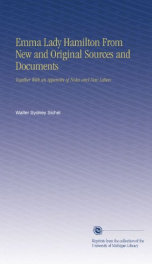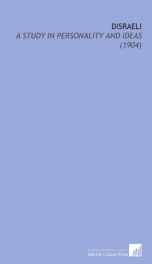disraeli

Purchase of this book includes free trial access to www.million-books.com where you can read more than a million books for free. This is an OCR edition with typos. Excerpt from book: CHAPTER II DEMOCRACY AND REPRESENTATION I WISH to head this chapter by a most striking passage hitherto unquoted. It occurs in the fourth of Disraeli's Letters to the Whigs, published in the first numbers of The Pressan organ founded by him in 1853 for the exposition of his views.1 It unites the brilliance of his youth to the ripeness of his prime. It is a wonderful forecast of the future, and it embodies his ideas at a time when the "Coalition" alliance of Peelites, Whigs, and Manchester Radicalsone of " suspended opinions "was entering on the career which closed so disastrously. In 1833, the "aristocratic " principle had been crippled. The problem now was how to bring the new democracy into line with an old monarchy "... I see before me a numerous and powerful party, animated by chiefs whose opinions in favour of all that can advance the cause of pure democracy have been openly proclaimed. Amongst that party no doubt there are some more moderate than others, some who march blindfold towards the goal which those of bolder vision see clear through the mists of faction. But all unite in the march of the caravan towards the heart of the desert ; and if there be those who then discover that the fountain which allures them on is but the mirage, it will be too late to return, and it will be destruction to pause. ... If England is to retain that empire which she owes to no natural resources, but to the various influences of a most complicated and artificial, but most admirable and effective social 1 The Press, June 11, 1853. The whole series is full of great strokes ; and there is also a critique on the dividing periods of English history, which is most bold and original. system, s/ie must gatlier into one united phalanx all ivho hold the doctrine that England, to be sa...
Users who have this book
Users who want this book
What readers are saying
What do you think? Write your own comment on this book!
write a commentGenre
if you like disraeli try:
Do you want to read a book that interests you? It’s EASY!
Create an account and send a request for reading to other users on the Webpage of the book!





